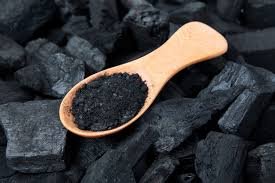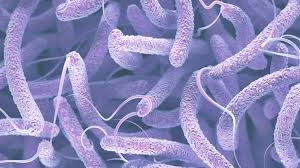The economic hardship induced by the galloping and headline inflation in Nigeria have pushed majority of the impoverished population to consistently devise means of survival. One of these is seeking affordable costs of basic needs, sometimes, ignoring the health threats of such applications.
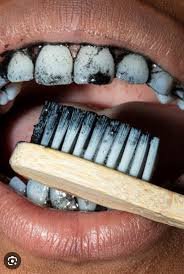
Take the charcoal for instance. Many in the cities have resorted to using it as an alternative to the paste. Ordinarily, city exposure discouraged households from using charcoal to clean the teeth. But the biting economic downturn, coupled with a recent find by a university don approving it use, charcoal is fast becoming a replacement for the paste. It is against this backdrop that Rabiu Sultan in this special report highlights all the sides of using charcoal to clean the teeth – oral hygiene.
Economic Hardship and Pressures on Families
Nigeria, proudly described as the Giant of Africa has been continuously faced with economic and financial crises pushing majority of its citizens into a state of abject poverty.
According to the World Bank, Nigeria’s poverty rate has surged to 56% in 2024 from 40.1% in 2018, leaving over half the population unable to meet daily financial needs.

The growing economic pressures in Nigeria have compelled many citizens to explore affordable alternatives for everyday needs.
Among these, the use of charcoal for brushing teeth has gained traction. While it offers some undeniable benefits, there are also significant risks and drawbacks to consider.
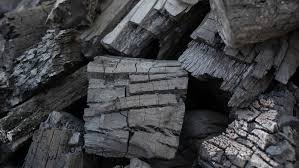
The removal of the fuel subsidy and the devaluation of the naira have exacerbated Nigeria’s economic struggles, pushing essential commodities out of reach for many citizens.
Nigerians are adopting cost-saving measures, including substituting charcoal for toothpaste to maintain oral hygiene.
For many Nigerians, charcoal has become a viable alternative for dental care.
Mr. Ayomide, a recent graduate, shared his experience of switching to charcoal due to rising costs.
“Finding a job has been tough. Every kobo counts, so I’ve had to cut back on anything that feels like a luxury. Toothpaste is one of those things.
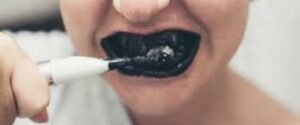
When I first couldn’t afford toothpaste, I felt embarrassed. But I remembered my grandmother always said charcoal was a natural cleanser. I decided to give it a shot, and now it’s my go-to. Charcoal is cheap and readily available, and I even like how it feels on my teeth.
What’s sad, though, is that this wasn’t a choice I made because I wanted to; it’s what the economy has forced me into. But now I understand why so many people in rural areas never bother with toothpaste—they’re just doing what works”
Similarly, Mr. Tunde, another user, emphasized the financial and practical advantages of charcoal.
“For a family, buying toothpaste every week is expensive. Charcoal, as a natural whitener, is far cheaper and effective. It removes stains and keeps our teeth white and healthy.”
Charcoal’s Accessibility and Cost Efficiency:
Charcoal is inexpensive, widely available, and perceived as a natural solution for dental care.
It has been used traditionally in rural areas, and its resurgence among urban dwellers reflects economic necessity. A single purchase of charcoal can serve multiple household purposes, making it a versatile and budget-friendly choice.
Cultural and Historical Usage:
Charcoal has long been employed as a natural cleanser in African and other traditional practices.
It is seen as a trusted, time-tested alternative to modern products, which are often laden with chemicals and priced beyond the reach of many.
Health Benefits of Charcoal for Oral Care
Teeth Whitening and Stain Removal:
Activated charcoal is widely recognized for its ability to remove surface stains caused by coffee, tea, and tobacco.
Its abrasive texture helps polish teeth, restoring their natural whiteness. Studies, including those published by the National Institute of Health (NIH), have validated its efficacy in stain removal, though results are not markedly superior to traditional toothpaste.
Odor Control and Detoxification:
Charcoal’s adsorptive properties allow it to trap bacteria, toxins, and odour-causing compounds.
This makes it effective in reducing bad breath and promoting oral cleanliness.
Natural and Non-Toxic:
Charcoal is a natural product without synthetic chemicals, making it an appealing option for those wary of modern toothpaste formulations.
Experts like Professor Abayomi Adetuyi emphasize its non-toxic nature, especially when properly processed.
Cost-Effectiveness:
With the rising costs of factory-made toothpaste, charcoal offers a significantly cheaper alternative while fulfilling similar functions.
For families struggling to make ends meet, it provides a practical solution for maintaining oral hygiene.
Risks and Disadvantages of Charcoal Use:
The use of charcoal for dental care has sparked both interest and caution, as experts and studies reveal its potential benefits and risks. Below are insights and research findings on this trend.
Expert Insights
Dr. Chad Bailey (General, Family, and Cosmetic Dentist)
Charcoal may initially show quick results in whitening teeth, but Dr. Bailey warns that its abrasive nature could lead to long-term damage. He states:
“Although it may show quick results initially, charcoal is nothing more than a temporary solution… damaged tooth enamel cannot replenish itself, which means any damage is permanent.”
Dr. Bailey adds that people with receding gums or sensitive teeth should avoid charcoal altogether, as it can worsen sensitivity. Furthermore, he notes:
“The American Dental Association does not approve of charcoal as a safe means for whitening teeth. If you do choose to use it, do so with caution.”
Dr. Tunde Banjo (Chief Dentist and Clinical Director, First Mobile Dental Care)
Dr. Banjo highlights the risks associated with persistent charcoal use, including enamel erosion and gum damage. He warns:
“Using charcoal to whiten the teeth can damage them because of the abrasives it contains… Persistent use will erode the teeth, cause wear-down lesions called abrasion, and lead to tooth sensitivity.”
He also notes the potential impact on oral microflora, stating that:
“It may damage the microflora in the mouth, resulting in mouth ulcers.”
Dr. Peace Nwoha (Member, Global Health Network)
Dr. Nwoha emphasizes the gradual damage caused by long-term charcoal use:
“Persistent use of charcoal will gradually erode the enamel, which is translucent, and slowly reveal the inner yellowish dentin of the teeth.”
She adds that most charcoal toothpastes lack fluoride, an essential ingredient for preventing cavities, and advises:
“It is not advisable to use it daily. Once a week is what could be recommended for those who use it.”
Research Findings
Journal of Applied Oral Sciences (2019)
A study tested charcoal’s whitening claims on cow teeth stained with black tea. The findings revealed that:
“Charcoal was unable to remove the tea stains… its abrasive nature posed concerns for enamel health.”
Journal of the American Dental Association (2017)
A comprehensive review found insufficient evidence to support the safety or efficacy of charcoal-based dentifrices. The review reported:
“Dentists should advise their patients to be cautious when using charcoal-based toothpaste due to unproven claims and safety concerns.”
University of Malaya Study
Among 350 villagers who used charcoal for brushing, 8.9% developed abrasion cavities on their teeth. The study concluded that:
“Using charcoal or salt is highly abrasive and injurious to both hard and soft oral tissues.”
Key Risks and Concerns
Enamel Erosion:
Dr. Banjo explains: “Long-term use will result in severe tooth wear lesions, exposing the dentin and increasing sensitivity.”
Lack of Fluoride:
Dr. Nwoha warns: “The downside… is that most activated charcoal toothpastes don’t contain fluoride, making teeth susceptible to decay.”
Staining and Aesthetics:
Improper use of charcoal can lead to staining of gums and dental restorations, as noted in multiple studies
Limited Efficacy:
Research indicates that charcoal is no more effective than traditional toothpaste and may fail to remove stains.
Recommendations for Safe Oral Hygiene
Experts agree on a balanced approach to dental care. Dr. Nwoha advises:
“Proper oral hygiene practices like brushing twice daily, flossing, and regular dental visits remain the best ways to maintain oral health.”
For those using charcoal, moderation is key. Dentists recommend limiting its use to occasional supplementation rather than as a primary dental product.
However, this trend also underscores the urgent need for policies that alleviate poverty and provide access to affordable basic necessities, including healthcare and personal care products.
While it offers notable benefits, its risks cannot be ignored.
Activated charcoal can serve as a cost-effective, natural supplement to traditional toothpaste, but overuse or improper application may lead to long-term dental issues.
As Nigerians continue to navigate the economic challenges, a balanced approach to oral hygiene that incorporates both traditional and modern practices is essential.

